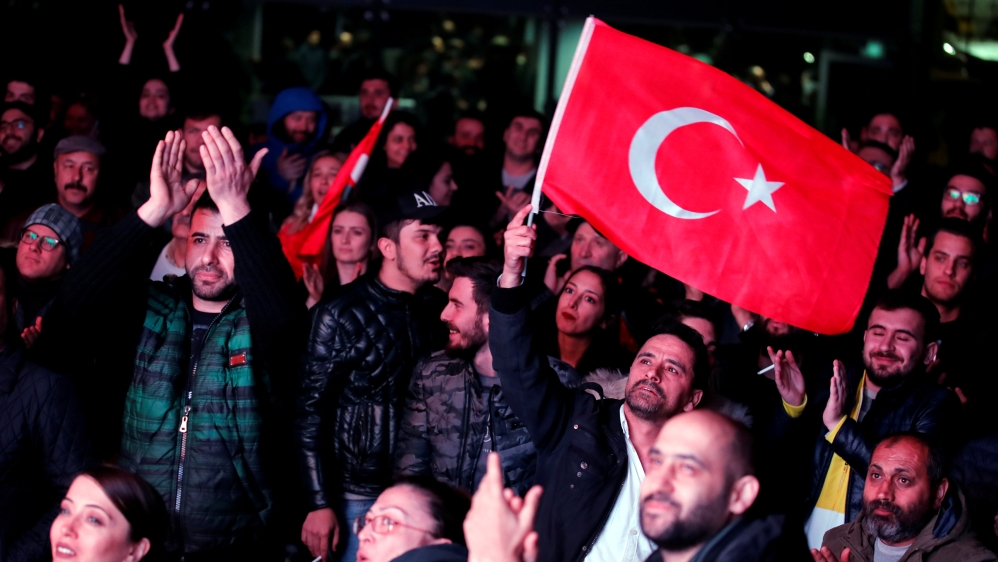
Zuzana Caputova, elected as Slovakia's first female president, greets supporters on Saturday evening. Petr David Josek/AP hide caption
Zuzana Caputova, a liberal environmental activist and a political newcomer, was elected Slovakia's first female president Saturday, riding to victory on a wave of public outrage against corruption in government.
With 58 percent of the vote, Caputova edged out European Commission Vice President Maros Sefcovic, a diplomat backed by the county's governing Smer-Social Democracy party.
In her acceptance speech, Caputova framed her win as a rebuke to the nationalist rhetoric on the rise in central Europe in recent years. Since 2015, nationalist parties have won victories in Hungary, Poland and Austria.
"I am happy not just for the result, but mainly that it is possible not to succumb to populism, to tell the truth, to raise interest without aggressive vocabulary," she told supporters.
Voters had been outspoken about their disgust with political corruption. After a journalist reporting on political corruption and his fiance were shot and killed last February, tens of thousands of Slovaks took to the street in protest, chanting "Enough with Smer." The protests would eventually prompt the resignation of the country's prime minister at the time, Robert Fico.
Ján Orlovský, who heads Slovakia's Open Society Foundations, told NPR at the time, "We have lots of these skeletons in the closet, which we need to address and one of the skeletons is corruption."
Caputova, a vocal participant in the protests that rocked the country, has promised to tackle corruption head-on. Casting herself as the anti-corruption candidate with the campaign slogan "stand up to evil," she vowed to shake-up the political establishment, which she says is currently run "by people pulling strings from behind."
Immediately after her victory, Caputova lit a candle at a memorial for the assassinated journalist, Ján Kuciak, and his fiancee, Martina Kusnírová.
First Slovak female president Zuzana Čaputová lit the candle for murdered journalist #JanKucia and his fiancée Martina Kušnírová. It was first thing she did after elections.
— Filip Struhárik (@filip_struharik) March 31, 2019
Photo @tomas_halasz #Nikon pic.twitter.com/TTi7DJhdWU
Caputova gained popularity in Slovakia after her decade-long crusade to shut down a toxic waste dump, which was spewing poison into her hometown of Pezinok in western Slovakia. Her campaign to close the site earned her a prestigious Goldman Environmental prize in 2016, along with the nickname "Erin Brockovich of Slovakia."
Caputova will be Slovakia's fifth president since the country gained independence in 1993.
As NPR's Joanna Kakissis has reported, Slovakia's presidential post is "largely ceremonial," with the president wielding little day-t0-day power. But, Caputova has been outspoken about her desire to use the platform to promote transparency.
She will take office in June.
https://www.npr.org/2019/03/31/708587211/the-erin-brockovich-of-slovakia-is-elected-the-country-s-first-female-president
2019-03-31 23:12:00Z
52780254037094







